Preserving and protecting the environment and promoting resource efficiency.
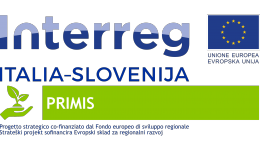
Protecting and promoting natural and cultural resources
The overall project objective is to enhance the linguistic, cultural and natural heritage shared by the minorities of the programme area in order to attract sustainable cultural tourism.
The common challenge of the programme area to which the PRIMIS project will contribute is the "Conservation, protection and restoration of cultural and natural heritage". The overall project objective is to enhance the value of the linguistic, cultural and natural heritage of the linguistic communities in the programme area in order to attract sustainable tourism. This area is by nature multicultural and multilingual, due to the presence of Slovenian and Italian national minorities and other language communities (Cimbrians, Ladins, Friulians) making it unique compared to other territories in Italy and Slovenia. The project will bring about a new perception of the multicultural and multilingual identity of the PA for both tourists and residents. The main outputs are the creation of 4 Multimedia Centres for the dissemination of the specificities and peculiarities of the indigenous language communities; a multimedia platform and a digital guide; the enhancement and promotion of cultural events in the PA; information and training activities for specific target groups. The beneficiaries are: tourists, residents, young people, SMEs, project partners. The intended approach is to transfer the multicultural and multilingual peculiarities of the indigenous communities to the tourism sector and the promotion of the cross-border territory through the use of innovative, interactive and multimedia tools with immersive and virtual reality in the Multimedia Centres. The approach will go beyond the current practices of the sector (sea-mountain) because it will help to create tourism products based on the cultural and linguistic heritage of the PA. Cross-border cooperation is necessary because it brings together the diversities and peculiarities linked to multiculturalism and multilingualism to create a unique image of the PA. The project is original because it considers the material and immaterial cultural heritage of the indigenous language communities as an added value for an economic activity - cultural and sustainable tourism.
The specific result indicator for the IP 6c programme is "The level of cross-border cooperation in sustainable use, protection and the enhancement of the cultural and natural heritage of the programme area". The first main result of the project will be to increase the attractiveness of the programme area in the field of sustainable cultural tourism due to the added value of material heritage, and of the indigenous communities.
The second will be to increase the ability of local public and private actors to communicate the added value represented by the indigenous communities on the territory for cultural tourism.
In the first phase of the project, the activities developed will focus on the contents of the material and immaterial heritage of the indigenous communities in the programme area, with the aim of drafting tourism materials and using them with the available ICT tools.
The second and third phases of the project are focused on using the material produced in the first phase for tourist purposes and on developing the ability of local public and private actors to communicate the selected contents in an innovative and appropriate way to the target groups of reference, processed in the first phase.
The project's target number is 2000 new visitors.
L’ampio partenariato guidato dall’Unione Italiana di Capodistria è composto da: Associazione temporanea di scopo PROJEKT, Regione del Veneto - Direzion e Relazioni Internazionali, Comunicazione e SISTAR - Unità Organizzativa Cooperazione Internazionale, CAN Costiera - Comunità autogestita costiera della nazionalità italiana di Capodistria, Regione Autonoma Friuli Venezia Giulia – Direzione centrale cultura e sport, Unione Regionale Economica Slovena di Trieste (SDGZ-URES), Agenzia di sviluppo regionale RRA Zeleni kras di Pivka, Camera per il Turismo e l’Ospitalità della Slovenia (TGZS), Fondazione Centro Studi Transfrontaliero del Comelico e Sappada, VEGAL - GAL Venezia Orientale.
Sono partner associati del progetto il Ministero per gli sloveni nei paesi contermini e nel mondo e STO - Agenzia nazionale slovena per il turismo.
Lead Partner
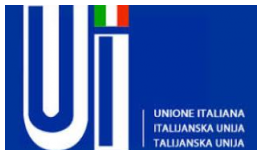
Associazione degli appartenenti alla Comunità Nazionale Italiana Unione Italiana
Project partner 1
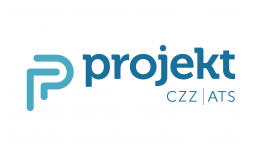
Associazione temporanea di scopo PROJEKT
Project partner 2

Project partner 3
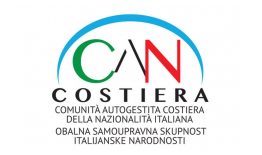
Comunità autogestita costiera della nazionalità italiana
Project partner 4
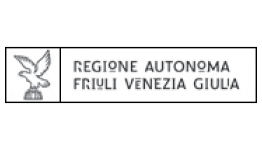
Project partner 5
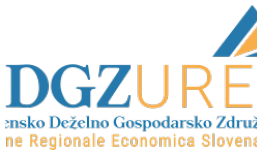
Project partner 6
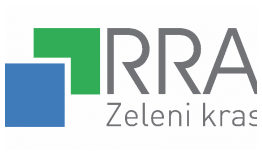
Project partner 7
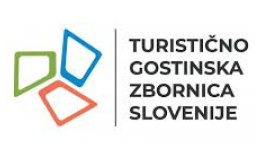
Project partner 8
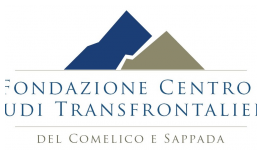
Project partner 9
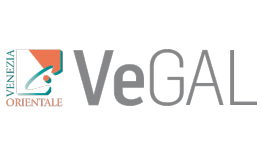
| Poster PRIMIS PRIMIS project Poster.pdf ( 4 bytes, published on 30 April, 2019 - 12:33 ) | |
| PRIMIS Roll-up roll-up 840x2070_Layout 1_DEF.pdf ( 6 bytes, published on 6 May, 2020 - 11:37 ) | |
| Press clipping PRIMIS Kick off meeting PressClippingKOM.pdf ( 5 bytes, published on 6 May, 2020 - 11:37 ) | |
| PRIMIS WP2 Action Plan WP2 Action Plan Primis_ITA_SLO_v1_12_04_2019.pdf ( 693 bytes, published on 6 May, 2020 - 11:37 ) | |
| PRIMIS Newsletter #1 PRIMIS Newsletter #1.pdf ( 572 bytes, published on 6 May, 2020 - 11:37 ) | |
| PRIMIS Newsletter #2 Primis Newsletter #2 mappa aggiornata_posodobljen zemljevid.pdf ( 3 bytes, published on 6 May, 2020 - 11:37 ) | |
| PRIMIS Newsletter #3 Primis Newsletter #3.pdf ( 1 byte, published on 6 May, 2020 - 11:37 ) | |
| PRIMIS Newsletter #4 Primis Newsletter #4.pdf ( 278 bytes, published on 6 May, 2020 - 11:37 ) | |
| PRIMIS Guide to friulanity in Veneto Guide_en.pdf ( 11 bytes, published on 17 April, 2023 - 12:26 ) | |
| PRIMIS Reiseführer alle Friaulismus in Venetien Reiseführer_deu.pdf ( 11 bytes, published on 17 April, 2023 - 12:26 ) |
1. Valorisation of the linguistic and cultural material and immaterial heritage of the indigenous communities present in the programme area:
In destinations where minority communities are present, tourism encourages visitors to interact directly with the local community and its customs and traditions, activating the so-called "cultural tourism". If culture is a tourism resource, then minority culture is too. Through its own culture, the minority provides an added value to the destination's tourism offer; vice versa, a conscious cultural tourism can contribute to the preservation, and in many cases, also to the enhancement of the minority culture.
2. Increasing the capacity of local public and private actors to attract users of sustainable cultural tourism:
In order to be effective in the long term, the development of the tourism offer and the valorisation of existing heritage must involve public, private, citizen and entrepreneurial actors. The ability to increase the attractiveness of the territory can only be increased through widespread information and training activities in the territory. PRIMIS plans to implement both training activities for the target groups and innovative tools to spread knowledge and recognition of the material and immaterial heritage of the indigenous language communities.
Activities
The approach involves involving tourism operators to give maximum visibility to the material and immaterial and linguistic cultural peculiarities of the indigenous communities, as an added value for the development of economic activities and tourism, with the use of innovative, interactive and multimedia, also by taking advantage of immersive and virtual reality. For this purpose, four multimedia centers will be created, aimed at spreading the peculiarities of the native linguistic communities, three infopoints will be activated that allow the visitor to create new itineraries, and a digital tourist guide. All accompanied by an action to enhance and promote cultural events, information and training activities, aimed primarily at young people, among whom 10 cultural ambassadors will be selected.
The activities are also supported by an important investment, which sees the recovery of the right wing of Palazzo Gravisi-Buttorai, in Koper. The building, one of the greatest examples of the city's Baroque architecture, owned by the Italian Union, will become a venue for museum, educational and training activities: together with the multimedia centers envisaged by the project spread across the border, it will constitute a stable network presentation of the cultural and linguistic heritage of the indigenous communities of the area.